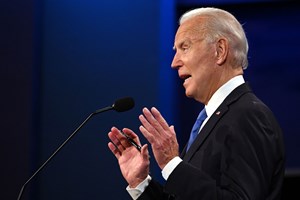Shale drillers foresee ‘world of hurt’ in Biden’s green economy
(Bloomberg) — U.S. shale drillers are incurring record labor and equipment costs so they can cash in on the highest oil prices in 14 years. They say one of the reasons they’re not doing more is because of President Joe Biden’s perceived hostility to the traditional energy industry.
Even as the Biden administration urges oil companies to boost production to offset the absence of Russian cargoes, many executives told Federal Reserve Bank of Dallas researchers they’re worried about investing in new shale wells because of the president’s long-term goal of phasing out fossil fuels.
“The current administration will only hurt energy companies, driving up prices and severely affecting the middle guy that drives the economy,” one unidentified respondent said in the Dallas Fed’s quarterly energy survey released on Wednesday. “We are in for a world of hurt for the next three years.”
Russia’s invasion of Ukraine — and the oil-market disruption that ensued — heightened tensions that already were simmering between the White House and oil CEOs who accuse the federal government of slow-walking drilling permits and overly onerous regulation. Their line of work is risky enough without having to worry that a new law or presidential decree may make some facet of their business obsolete or illegal, they say.
But that hasn’t stopped drillers in the Dallas Fed’s territory that covers Texas and parts of New Mexico and Louisiana from pushing oilfield activity up 31% during the first three months of this year while increasing hiring, hours worked and wages, the survey found.
In recent weeks, the Biden administration has accused the oil industry of leaving thousands of federal drilling permits untapped while questioning if some in the industry are gouging consumers with gasoline prices around $4 a gallon.
“The talk about price gouging is tiresome,” said another respondent. “Discussion of federal leases and those leases being unused without an honest discussion about all the constraints and regulatory issues to drill is also unhelpful.”



